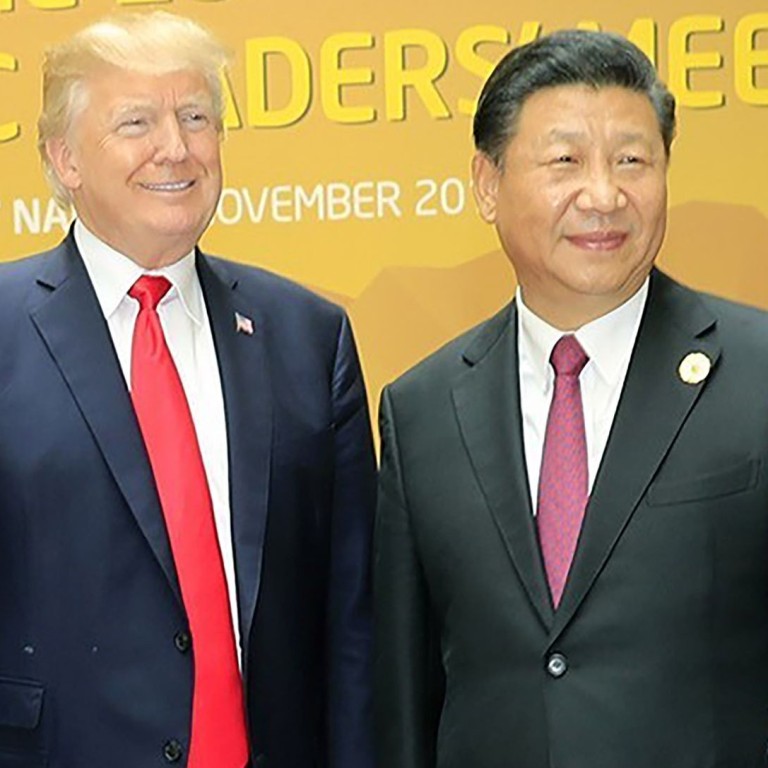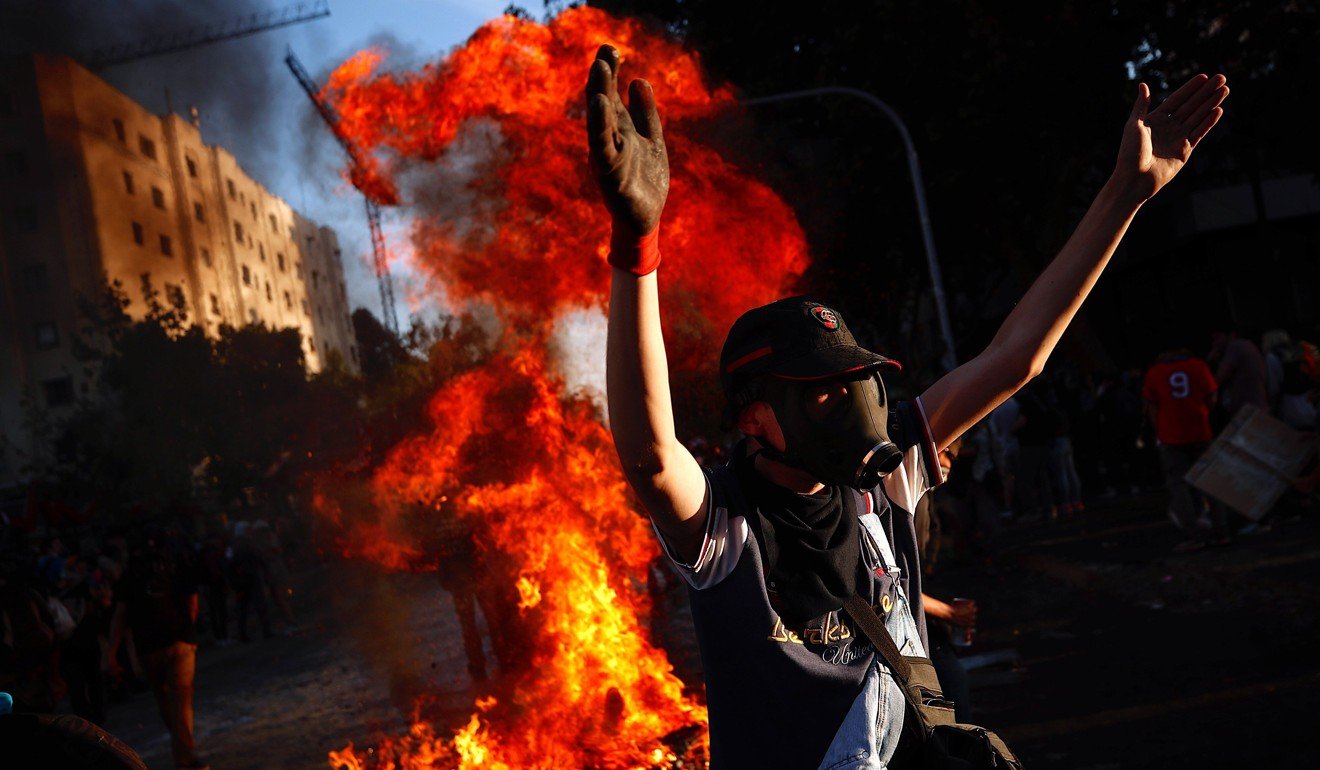
Donald Trump won’t get a grand stage for a US-China trade deal after Chile calls off Apec summit. So what now?
- The cancellation of the summit due to ongoing protests has deprived the US President of a setting to seal a ‘phase one’ deal with his Chinese counterpart Xi Jinping
- The White House had hoped to deflect attention from the impeachment inquiry and was caught off guard by the announcement
The US-China trade war drama is full of protagonists, antagonists, comedy, and tragedy, but what has generally been less of a problem has been the set pieces. That appears to have just changed.
Chilean President Sebastian Pinera announced this week that Santiago would no longer host two upcoming major international summits, the Asia-Pacific Economic Cooperation summit and the 2019 United Nations Climate Change Conference, also known as COP25.
The cancellation comes amid massive protests and riots, which have lead to more than a dozen deaths and million of dollars in damage to property.
Chile’s ability to safely and securely host world leaders for these meetings has been compromised as a result.
“This has been a very difficult decision, a decision that causes us a lot of pain, because we fully understand the importance of Apec and COP-25 for Chile and for the world,” Pinera said in a statement. He was right on the importance of both meetings.
The former of these was meant to provide the backdrop for the long-elusive interim trade deal that Washington and Beijing have been working toward.
The White House, eager for a victory as political tensions over President Donald Trump’s impeachment inquiry rise, was caught off guard by the decision.
The consequences of the meeting’s cancellation will affect more than just US-China trade diplomacy; for instance, Japan’s prime minister, Shinzo Abe, was looking forward to yet another important meeting with Russian President Vladimir Putin at the summit.

Apec’s role in international affairs is often misunderstood. It’s not a regulatory organisation or a forum for trade negotiations; rather, it serves as a consultative mechanism on trade matters and perspectives among its 21 member states, all of whom occupy the geographic periphery of the Pacific Ocean.
In recent years, however, the Apec summit has marked an important moment on the diplomatic calendar and provided a stage for important bilateral sideline encounters between participating countries. The encounter between Trump and Chinese President Xi Jinping, however, will have to wait for another day.
Both the United States and China have reacted with understanding to Chile’s decision to call off the summit.
Trade war: China and US to hold phone talks on Friday after Apec setback
Geng Shuang, a spokesman for the Chinese Ministry of Foreign Affairs, said: “China understands and respects the decision, and believes that the government and the people of Chile have the ability to safeguard the country’s stability and social peace, as well as restore order as soon as possible.”
For now, both sides appear to be maintaining their optimism that an interim agreement could be reached, despite the lack of a specific venue.
Where there’s a will, there will likely be a way, but the history of this trade war tells us to expect the unexpected.
Trump’s mercurial nature has led to negotiations becoming stuck in the doldrums, particularly as Beijing has felt caught off guard by the United States agreeing to certain concessions at the working level of talks, but refusing the abide by them at the leader level.
The most important effect of the cancellation of Apec, for now, appears to be a delay. The summit was scheduled for November 16 and 17.
Without a venue, the US and China will need to organise a new summit for the signing of a “phase one” trade deal.
Following Pinera’s announcement, Trump took to Twitter – his communication method of choice – to reassure markets that China and the USA were working to select new site for the signing of phase one, which he described as “about 60 per cent” of the total deal.
The cancellation of Apec is a fitting metaphor of the times: free trade, multilateralism, and friendly consultation among states appear to still be falling out of vogue.
A “phase one” trade deal may still loom around the corner, but it’ll have to take place without the pageantry of the Apec summit around it.
Ankit Panda is a senior editor at the Diplomat

